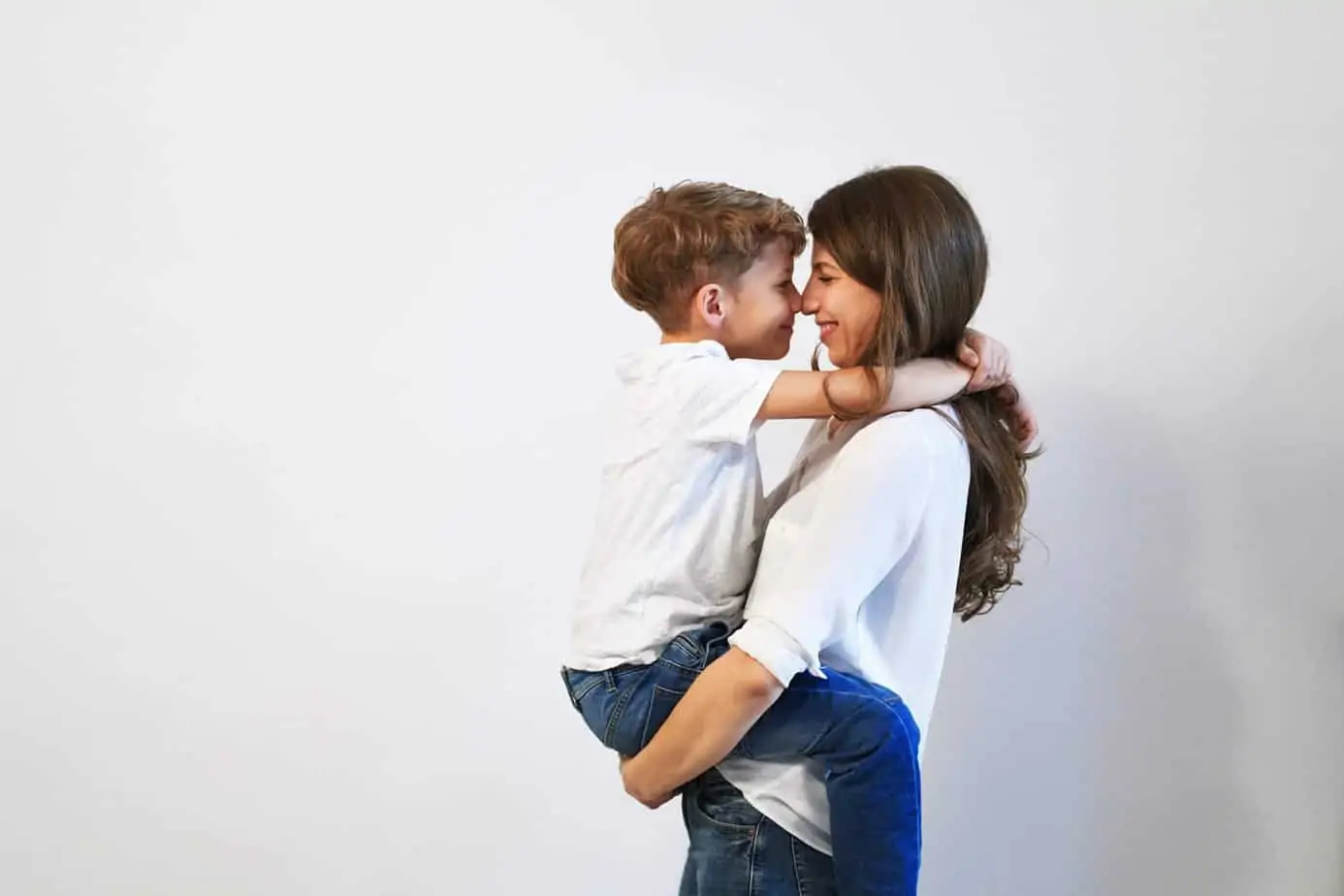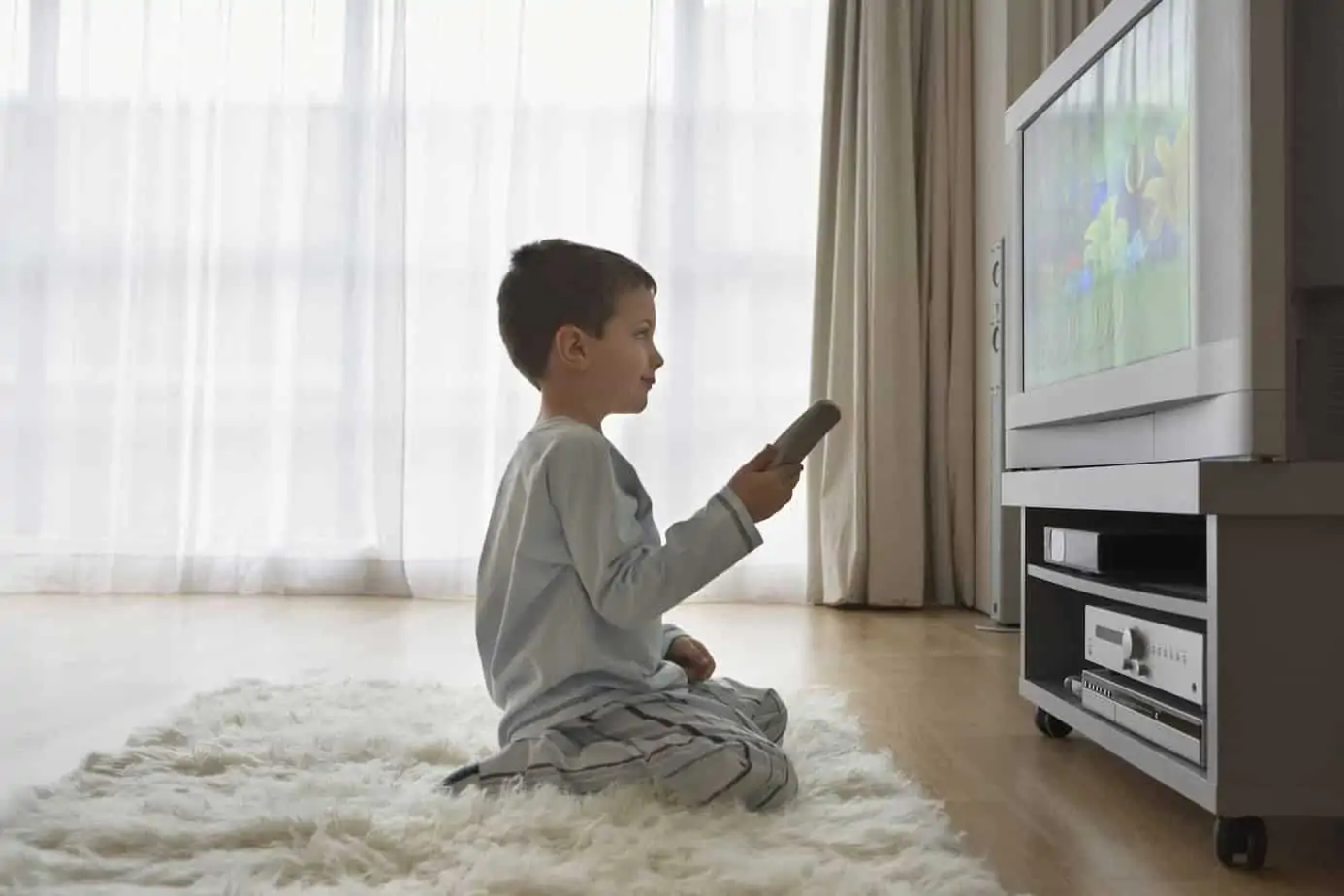Teaching Kids Self-Control: Overcoming “The Expectation Gap” When Setting Age-Appropriate Behavior Expectations
Does this sound like something that happens in your house?
You’ve asked your son to put his pajamas in the laundry every morning after he changes. Granted, he’s two and a half years old, but because you’ve asked him every day for the last 156 mornings, so now you expect him to do this task without a problem. Right?
But he doesn’t.
Every morning he throws his pjs on the floor haphazardly and joyfully goes about the morning unaware of the laundry strewn on the floor and nowhere near the hamper. You peek in his room and that’s when the annoyance and anger bubble up inside and everything turns red.
And suddenly day 157 of getting angry and shouting, “You didn’t put your pajamas in the laundry again, get back in your room!” is in the books.
Why can’t he just do what you asked him to do? Is he testing you? Being defiant? What is going on!?!
It doesn’t matter if it’s pajamas, keeping hands to themselves or putting shoes in the right spot… there is always something you’ve asked hundreds of time which to this day, may still not get done.
Does this feel like you too? Because my son for an entire year did NOT put his pajamas in the hamper and it used to drive me crazy. That was until I found out his body and brain are actually incapable of mastering this piece of self-control until he was a certain age.
This my friend, is known as the expectation gap.

What is an Expectation Gap?
It’s frustrating when your kids don’t follow the rules but have you ever stopped to think if the rules or restrictions you place are age-appropriate for the development of each of your kids? Could it be they aren’t following requests for reasons other than complete disregard for authority, testing boundaries and flirting with making you mad?
Often, we set expectations and rules for our children that aren’t developmentally appropriate and this leads us on a path of anger, frustration, stress and even yelling when they aren’t met.
Sure, parenting each of our unique children takes a lot of directed effort and a daily dose of patience, but if we don’t set a foundation build upon with fair rules and appropriate expectations, we’re not only setting our children up for failure, but ourselves as well.
The disconnect between what parents expect of their children and the reality of their actual abilities and brain development to manage and exert self-control with their emotions and body is called the expectation gap.
Often, the gap between what parents expect and what children can do is very different. Check out this infographic put together by ZERO TO THREE.
Setting Age-Appropriate Expectations
In the ZERO TO THREE’S national Parent Survey it was found that parent’s expectations of their children’s abilities are higher than what they are actually capable of when it comes to impulse and self-control.
- 56% of parents thought children can resist doing something that is forbidden before age 3.
- 44% of parents said their children could resist breaking the forbidden rule at age 3 or older.
- 18% of parents believe children are capable of resisting by 6 months of age.
- 24% of parents believe their children can control their emotions and ability to have a tantrum by age one.
- 42% of parents think kids control their bodies and throw tantrums by age two.
The Reality?
Children do not develop impulse and self-control until 3.5 – 4 years of age.
That’s a tremendous age difference between what parents surveyed expect of their children and their actual, biological capabilities.
This is like when I was asking my son everyday for nearly an entire year to pick up his pajamas and them in the hamper four feet away… the expectation of him learning this controlled behavior was too great for his little body to internalize. Once he turned four though, this problem went away. Why? My expectation of his capabilities was too great at age two and I had to lower my own expectations until they were age-appropriate.
Thanks to ZERO TO THREE I’m aware of placing too high, or just right exceptions on my kids to what they’re capable of.
Brain Development by Age
How many times have you asked your child not to touch the remote, or keep their hands to themselves, to not step off the sidewalk or not run in the house… but they keep on doing it?
These are common everyday occurrences in homes with toddlers and it’s easy to think you’ve asked them not to do something a handful of times and they should understand the rules by now. But this isn’t the case. Toddlers lack self-control which is why it seems like they’re always “breaking the rules” and testing limits.
Toddlers don’t have the brain development quite yet to control their impulsive and emotions part of their brain until they are over the age of three. As this cortex of their brain develops, this is why toddlers act on their desires and have impulsive responses which leave you scratching your head about why they didn’t consider the ramifications of their actions BEFORE they acted.
- Self-Control / Impulse-Control: Mastered Between Ages 3.5 – 4 years old (source)
- Sharing & Taking Turns: Mastered Between Ages 3.5 – 4 years old (source)
Teaching Kids Self-Control
Try the Emotions Identification Bundle to help support your child in learning, naming, and communicating their feelings and deep dive into what’s going on, on the inside.
- Remember, your child is still learning and its your job to be patience and continually teach them. They cannot get the hang of something or understand rules and expectations until they are of the proper age. Continue to teach them self-control but don’t assume they’ll “get it” until a certain age.
- Play fun games to teach kids self-control and impulse control
- Simon Says
- Red Light, Green Light
- Hide N’ Seek
- Freeze (Dance until the music stops)
- Duck, Duck, Goose
- Motor Games – go Fast, then Slow, Stop, Jump, etc.
- Counting – Objects and Counting 1 – 10, etc.
- Drumming (following one lead drummer like Mom or Dad and practicing the beat, then stopping when they stop, fast and slow, etc.)
- Keep the lines of communication open and frequently discuss emotions and feelings to build emotional intelligence during development
- Set appropriate limits with natural consequences – nothing that is too big of a ramifications or doesn’t align with the limit. For example;
- if you throw your toys, I will have to take your toy
- if you chose to hit someone, you will have to go to a calm down space and play by yourself
- Learn more about how to get your kids to listen the first time and setting reasonable warnings & consequences

Parents: How to Manage Your Own Emotions
Being a parent is an amazing experience, but on a daily basis it requires a whole lot of patience. Being a Mom or Dad is an intensely emotional experience where throughout the course of an hour you may run the gamut of emotions from joyful and excited to upset, angry and trying to stretch your last ounce of patience.
You’re not alone.
ZERO TO THREE’S national Parent Survey shows that 60% of parents want to be more patient, 47% wish to have better control of their emotions, while 42% hope to make improvements so they don’t raise their voice and yell at their children as quickly and 35% want help to control their temper so they don’t lose it so quickly.
The first step to more patience and controlling emotions is to recognize the triggers which set you off, are 99% of the time, not associated with your children – but are triggers within yourself being set off.
For example, you’ve asked your kids to clean up the mess they made downstairs before friends come over for dinner. You go to check on them 10 minutes later and the mess is still there and now they’re playing with new toys. Before you know it, you’re grabbing toys, throwing them in bis and getting upset at your kids who you asked to do a chore but did not.
Is it because your children’t didn’t listen that you are angry or maybe it’s something more which triggered you to yell….
- Do you want to have a clean house before your friends arrive?
- Are you stressed out having to clean the house and asked for some help but didn’t receive it and now to have to pick up another part of the house as well?
- Are you angry your kids don’t listen to you and you feel like you have no control?
As you work through impatience, frustration and anger, it’s important to take note of your surroundings and focus in on the true triggers which are causing you to become upset. Your personal baggage and expectations can very easily be placed on your children and cause you to take out your emotions on them.
Where You Can Get More Information…
Read more at the ZERO TO THREE about the Expectation Gap, or check them out on Facebook and Twitter. Be sure to sign up for the newsletter and receive monthly tips, tools and story-sharing opportunities.
Early connections last a lifetime. Great ways to connect with your child from birth:
- https://www.zerotothree.org/parenting/positive-parenting-approaches
- https://www.zerotothree.org/early-learning/play
- https://www.zerotothree.org/early-development/brain-development
You Might Like…
- How to Create a Positive Home (And Why this Will Affect Your Kids Forever)
- When Motherhood Leads to Postpartum Depression & Burnout
- 9 Ways to Boost Your Child’s Confidence
- Ways to Develop an Emotionally Intelligent Child Who Understands Their Emotions
- How to Dig Yourself Out of Mom Burnout
Want even more?
Shop All Parenting Resources
Shop all of our parenting resources from self-regulation tools and managing big emotions to building self esteem and confidence. There are resources for all seasons of life!







